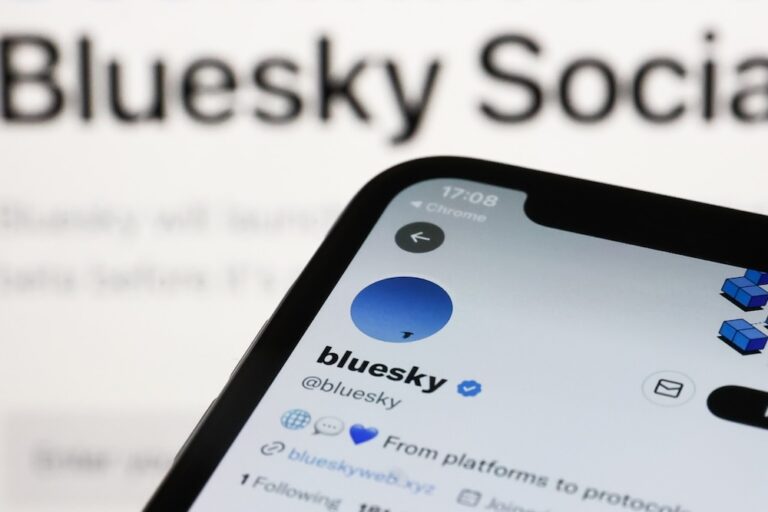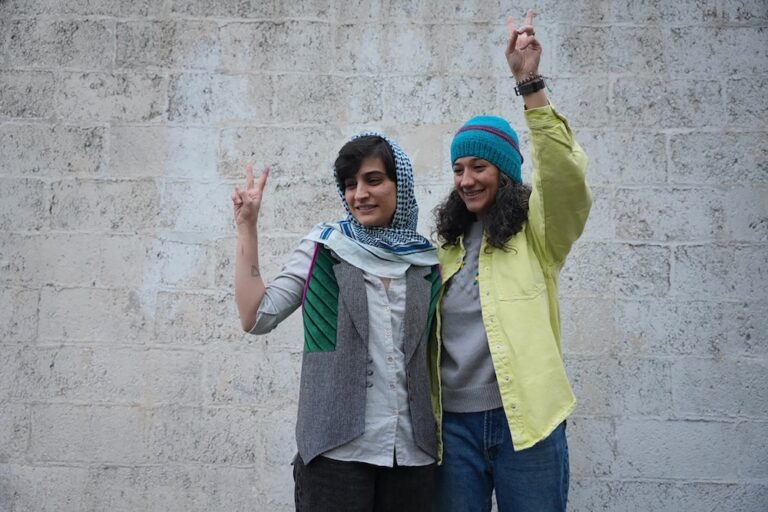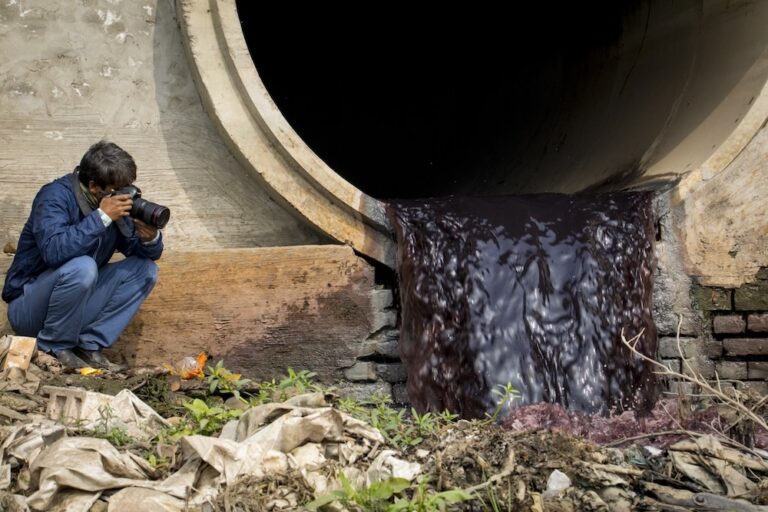(IAPA/IFEX) – The following is a 27 July 2001 IAPA report: IAPA warns of culture of self-censorship stemming from violence and wave of lawsuits against journalists and news media Nine journalists murdered in the past three months, onslaught of lawsuits and damages awards against media, and new press laws are curtailing freedom of expression in […]
(IAPA/IFEX) – The following is a 27 July 2001 IAPA report:
IAPA warns of culture of self-censorship stemming from violence and wave of lawsuits against journalists and news media
Nine journalists murdered in the past three months, onslaught of lawsuits and damages awards against media, and new press laws are curtailing freedom of expression in the Americas.
MIAMI, Florida (July 27, 2001) – The Inter American Press Association (IAPA) today warned of a “culture of self-censorship”, which not only is weakening the work of the press but restricting people’s right to be informed and thus their role in democracy. The IAPA made this assertion after reviewing the state of press freedom in the Western Hemisphere in the past three months.
The IAPA’s governing body, its Executive Committee, declared at its quarterly meeting here that its “greatest concern” was the fact that seven journalists had been murdered in Colombia, one in Mexico and another in Costa Rica since March this year.
Regarding crimes against journalists, the IAPA’s Impunity Project has carried out new investigations and follow-up inquiries in 11 cases of the murder of news men and women, the findings of which are posted on the IAPA’s Web site www.impunidad.com. The cases looked into are those of Maria Nilce dos Santos Magalhães, Manoel Leal de Oliveira, Ronaldo Santana, Reinaldo Coutinho da Silva and José Carlos Mesquita from Brazil; Mario Bonino from Argentina; Benjamín Flores from Mexico; Salvador Medina from Paraguay; Jean-Leopold Dominique from Haiti, and Jairo Elías Márquez and Ernesto Acero Cadenas from Colombia.
The IAPA committee also expressed concern over the violence in Haiti, Cuba and the Dominican Republic, innumerable lawsuits being filed against individual journalists and the news media, particularly in Costa Rica and Brazil, and new anti-press legislation and bills in Paraguay, Chile, Nicaragua and Panama. In addition, it noted with regret that a climate of self-censorship was developing.
IAPA President Danilo Arbilla said that this self-censorship resulting from violence was evident in rural areas of countries where journalists were least protected, such as Colombia, Mexico and Brazil, and feared reprisals for writing about corruption or drug trafficking.
The chairman of the IAPA’s Committee on Freedom of the Press and Information, Rafael Molina, said that during a recent visit to Costa Rica journalists and media representatives told IAPA delegates that they often failed to publish matters of public interest out of fear that they would be “punished with high damages awards and fines” and other legal action, such as the imposition of a right of reply.
“The climate of fear that they seek to create among journalists has an even more serious consequence, in that it deprives citizens of their right to be informed – a cornerstone of the democratic process,” the IAPA Executive Committee declared.
On the legal front, the IAPA again protested the ruling by the Venezuela Supreme Court pronouncing on the concept of “truthful information” and the media’s responsibility for the views they express and for their hiring practices. Among other things, the ruling stated that “it is an offense against truthful and impartial information to have a majority of columnists of one single ideological viewpoint.”
The hemispheric free-press organization also protested setbacks to press freedom in countries such as Chile, Paraguay and Nicaragua, with the passage of laws curtailing press activities.
In Chile, rather than eliminating restrictions on the press, new legislation titled “Law on Freedom of Opinion and of Information and the Practice of Journalism” in fact set up a new regulatory system. In Paraguay, two laws went into effect – on “Administrative Transparency” and on “Regulating Information of a Private Nature” – that created “protective shields” for public officials by banning reporting on their actions and assets. In Nicaragua, a “Law Establishing the Journalists Colegio” for the obligatory licensing of journalists was enacted, while in Panama a bill for similar legislation was introduced in Congress.
Harassment by the government was also evident in Argentina and Guatemala, where the media have faced direct and indirect pressure by the national and state governments. Similar incidents occurred in Brazil, Panama, Nicaragua and Uruguay, where governments or official agencies used discrimination in the granting of official advertising as a means of pressuring the media.
The IAPA Executive Committee called for stricter compliance with the principles of the IAPA-sponsored Declaration of Chapultepec as a means of respecting press freedom and democracy. The Declaration states that “no people or society can be free without freedom of expression and of the press,” and that “the exercise of this freedom is not something that authorities grant, it is an inalienable right of the people.”
The following are the principal threats to press freedom being faced by the countries of the Americas:
Argentina
There is no let-up in the political-judicial harassment of El Liberal of Santiago del Estero by the Peronist state government. Gov. Carlos Juárez is behind 4,000 lawsuits filed by women belonging to a feminist wing of the ruling party and contrived to have the local judiciary order a number of preventive embargoes against the newspaper. The federal Supreme Court is currently reviewing this process. Juárez is also using placement of official advertising to punish El Liberal and “reward” other media, in clear discrimination and misuse of public funds.
Brazil
Increasingly evident is a veritable “industry” of damages awards being levied against the media, amounting to substantial sums that are affecting the press’s role and the very survival of many media outlets. Hit with big damages awards, totaling the equivalent of $1,176,470, were: the daily newspaper Extra of Rio de Janeiro, the daily Paperá of Salto, the Tres Communications Group, which publishes the magazine Istoé, the Editora Abril publishing house of São Paulo, and radio station Radio Eldorado, of the O. Estado de S. Paulo Group. In addition, fines imposed on media and individual journalists amounted to the equivalent of 400 minimum monthly salaries.
In the face of ongoing discrimination in the placement of official advertising, on May 8 the Salvador, Bahia, newspaper A Tarde filed a suit against the State of Bahia and the city of Salvador.
Chile
The “Law on Freedom of Information and of Opinion and the Practice of Journalism” went into effect on May 18. The legislation was described by the IAPA as “a new means of regulating the news media and journalists,” as all the provisions curtailing press freedom could well have been repealed without the need for any new such law. Among its positive aspects, the law revoked regulations empowering judges to order court reporting bans at their whim, it did away with use of military tribunals to try those accused of offending the military in the media, and it scrapped Article 6, paragraph b of the State Security Law, which had made journalists answerable in court for anything they wrote that offended senior officials.
Also of concern is the launch of a free daily newspaper in Santiago funded by public monies. The afternoon paper, La Voz de la Tarde, is published by Empresa Periodística La Voz S.A., a subsidiary of the state-owned Empresa Periodística La Nacion S.A.
Colombia
Seven journalists have been murdered in the past three months: Eduardo Estrada Gutiérrez, Jorge Enrique Urbano, José Dubiel Vásquez, Arquímedes Arias Henao, Pablo Emilio Parra Castañeda, Yesid Marulanda Romero and Flavio Bedoya Tovar. Three other journalists were kidnapped.
There were also numerous violent attacks on news media, threats to and abduction of journalists, as well as government pressure being exerted on journalists for their editorial policies, such as in the case of Edgar Artunduaga, fired from his job at Radio Caracol over his strong criticism of President Andrés Pastrana.
Costa Rica
In a rare incidence of violence, journalist Parmenio Medina, was murdered. He was a radio producer and host of the political satire program “La Patada” (The Kick), broadcast by Radio Monumental in San José.
Three days before his death, an IAPA mission visited San José and called on a group of legislators for “greater guarantees and respect for press freedom,” especially in relation a number of laws and regulations that have spawned a whole series of lawsuits and damages awards against the press, leading many media and journalists to resort to self-censorship.
Cuba
Since November 1997, the government has been holding in prison, in deplorable conditions, journalist Bernardo Arévalo Padron, sentenced to six years for the crime of insulting President Fidel Castro and Vice President Carlos Lage. On May 24 this year, José González Bridon was sentenced to two years’ imprisonment on charges of spreading “false news against world peace.”
Despite the government’s complete control over of the media and the inability to access official information, there are 20 independent news agencies and a number of new ones are emerging, such as the Manuel Márquez Sterling Journalists Association, recently launched in Havana, which comprises 50 independent journalists from throughout Cuba.
Dominican Republic
Cameraman Cristino Rodríguez, of the program “Detrás de la Noticia” (Behind the News), was shot at. Police said they were questioning a leader of the ruling party in Santiago, Dominican Republic’s second city, as a suspect in the shooting. The television program is conducted in Santiago by journalist Esteban Rosario, who himself was beaten up earlier this year.
Television reporters and commentators complained of government pressure and the imposition of censorship on two radio producers. Meanwhile, the May 26, 1994 disappearance of columnist and university professor Narciso González remains a mystery. He went missing after roundly criticizing then President Joaquín Balaguer and senior military officers, accusing them of carrying out electoral fraud in that year’s general elections.
Ecuador
In what is a clear interference into editorial policies, the possible passage of a Childhood and Adolescence Code would require media to provide free space to the promotion and publicizing of judicial and administrative edicts.
The editor of the El Observador newspaper, Wilson Cabrera, was sentenced to three months in prison for committing “serious libel” by having alleged irregularities in government agencies and in the administration of justice in his province in eastern Ecuador.
The Deputy Director of the Guayaquil daily Expreso will face a criminal trial brought about by a political party representative because he felt attacked by an editorial on the corruption that affects political circles.
Guatemala
The editors of the daily newspapers Prensa Libre and elPeriodico, together with a number of their reporters, were the victims of a smear campaign and the targets of verbal and physical abuse after publishing complaints of political discrimination by the government in the granting of broadcast licenses and concessions.
Haiti
Journalists complained of serious difficulties in accessing official news sources. There is also a prevailing culture of self-censorship out of fear of reprisals and pressure and threats being exerted by members of the ruling Lavalás Family party.
The murder of journalists Jean Leopold Dominique and Gerard Denoze continue unpunished, despite the fact that charges have been laid in the Dominique case. The judge rejoined the Dominique investigation after having withdrawn from the case as the result of threats.
Mexico
The Mexico-U.S. border continues to be the setting of the greatest number of violent incidents and journalists’ murders. In March, Saúl Antonio Martínez, managing editor of El Imparcial of Matamoros, Tamaulipas state, was murdered after being kidnapped. Many crimes against journalists remain completely unpunished despite a commitment by the federal government to put pressure on the states to investigate and solve these crimes.
Nicaragua
The Law Establishing the Journalists’ Colegio, which provides for the licensing of journalists, entered into effect. It violates every constitutional precept and international law governing freedom of expression and of assembly. A writ has been filed contesting the constitutionality of the law and seeking its repeal, on the grounds that it would prevent any citizen from being able to receive and impart news.
The government of President Arnoldo Alemán continues with its systematic policy of discrimination in the placement of official advertising. The newspaper El Nuevo Diario is its latest victim, as were La Prensa, Barricada and other media with differing political views in the recent past.
Panama
A new legislative bill proposes the obligatory licensing of journalists, restricting the ability of foreigners to work in Panamanian media, the establishment of a conscience clause and making a code of conduct obligatory for the press. It also, among other things, would set rules for the length and content of news stories.
Paraguay
Two laws went into effect in mid-July – one on “Administrative Transparency” and the other on “Regulating Information of a Private Nature.” Far from providing for greater transparency in government and guaranteeing free access to public records, the legislation actually restricts this right and journalists’ work, in particular by setting up protective barriers to prevent reporting on corruption among public officials.
Peru
A case of censorship was reported in April, with a ban on publishing exit polls during presidential elections. This was an interpretation of a congressional measure passed last year allowing reporting only after the official vote count. This measure was later thrown out, following an appeal by the media to the Constitutional Court.
The ban on publishing opinion polls during electoral periods is still current and has been extended to a week prior to the respective elections.
Uruguay
Unfortunately, the rewarding or punishment of media through discriminatory placement of official advertising by state agencies and municipal governments is on the increase. Also proliferating are lawsuits based on an abusive right of reply, clearly curtailing freedom of expression in every sense.
Venezuela
In June, the Supreme Court issued a ruling regulating the concept of “truthful information, the responsibility of the media for the views they express and their hiring practices.” The ruling responded to a petition by journalist Elias Santana that he be allowed to exercise a right of reply to respond to remarks about him made by President Hugo Chávez on August 3 and 27 last year on his radio program “Alo Presidente” (Hello, President).
The IAPA called the Supreme Court decision “political, discriminatory and beyond the limits,” saying that it sought to create “protective shields” for an official culture of intolerance. In addition, the organization declared that the Supreme Court ruling implied a clear governmental interference in private matters, citing the phrase it contained that “it is an offense against truthful and impartial information to have a majority of columnists of one sole ideological viewpoint.”


